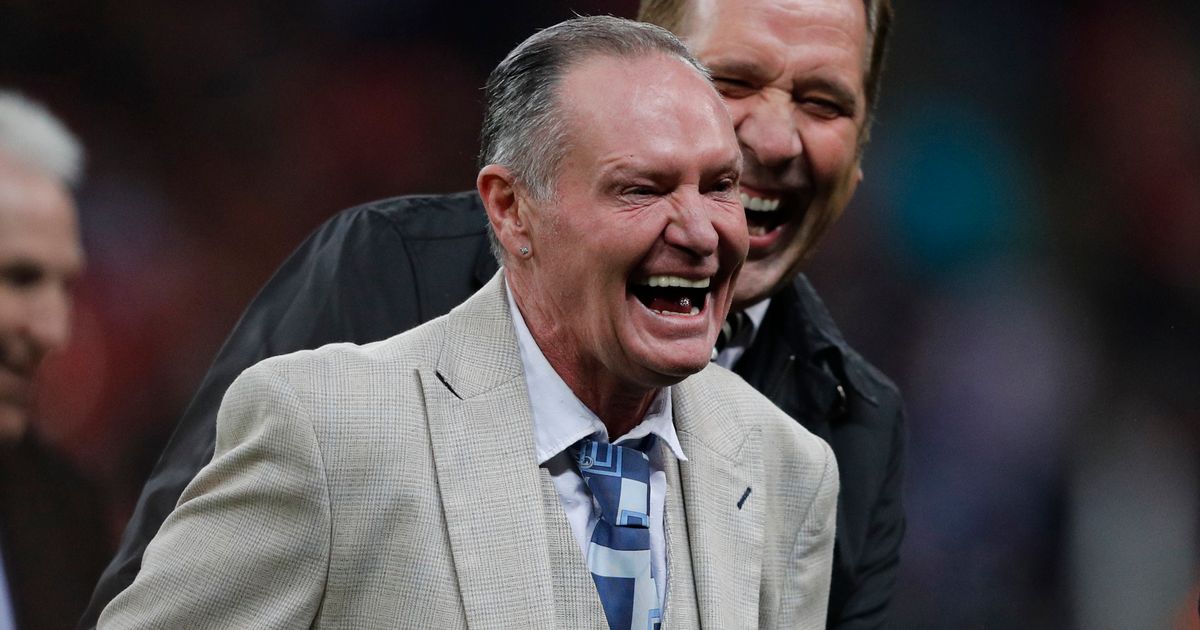Former England hero Paul Gascoigne once paid an unexpected home visit to a Rangers supporter during his playing days, and it truly showed his classy character
Former Newcastle United and England legend Paul Gascoigne demonstrated his compassionate side with a touching gesture towards a Rangers supporter during his playing career.
The 58 year old, who grew up in Gateshead, progressed through the Magpies’ youth system in the 1980s and went on to feature in over 100 first-team matches for the club, netting 33 times. His career later took him to clubs including Tottenham, Rangers, Middlesbrough and Everton, before he hung up his boots in 2004.
Gascoigne also earned 57 caps for England, finding the net 10 times and providing 11 assists during his international stint. He made his Three Lions bow against Denmark in a friendly match in 1988.
READ MORE: How Man Utd could line up if Ruben Amorim lands three dream January targetsREAD MORE: Virgil van Dijk reveals Xavi Simons conversation after red card challenge
Following his retirement, Gascoigne has spoken candidly about his battles with alcohol addiction and mental health issues over the years. These struggles have received significant media attention, whilst stories showcasing his often private acts of kindness have largely gone unreported.
Football agent John Viola was keen to shine a light on the former player’s generous and warm-hearted character, recounting a moving incident he witnessed whilst Gascoigne was still turning out for Rangers.
In a post published on LinkedIn, he described how Gascoigne vanished from a pub they regularly visited for a couple of hours on one occasion to call on a nearby Rangers supporter, reports Chronicle Live.
“You hear a lot of stories about Paul Gascoigne,” Viola wrote in a lengthy post. “Here’s one you wont read about in the papers.
“For all the headlines and chaos that surrounded him, Gazza was one of the kindest, most down-to-earth people I’ve ever met. One Sunday afternoon Gazza and I were in our usual pub, a few of the Rangers lads having a pint, when a man came over – quiet, polite, maybe mid-40s.
“‘Sorry to bother you. I don’t really follow football, but my dad’s Rangers mad. Paul, would you mind signing something for him?’ Gazza smiled, signed whatever paper was handed to him.
“Then he nipped off to the toilet and didn’t come back. Typical Gazza, we all thought – he’s done a runner again. Two hours later, he walks back in, full of life.
“Turned out the man’s dad lived just down the road. Gazza had gone with him, spent two hours at the old boy’s house, having a cuppa and a chat. No cameras. No fuss. Just being himself. That’s Gazza.
“A man who goes out of his way to make other people happy. Most people only ever see the headlines on players – the press stories, the clips, the drama on social media. But being an agent gives you a rare window into who these players really are.
“And if you’re lucky, every now and then, you see their soul. That is what this is all about. Footballers are humans first – never forget that.”









